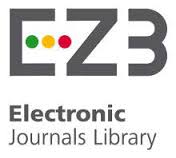INSTITUTIONAL ARRANGEMENTS, POPULAR COPARTICIPATION AND GOVERNANCE IN EDUCATIONAL PUBLIC POLICIES
AN INTEGRATIVE LITERATURE REVIEW
DOI:
https://doi.org/10.25245/rdspp.v12i2.1531Keywords:
Educational Public Policies, Governance, Institutional arrangementsAbstract
As a researcher and teacher, I insert myself in educational contexts to uncover nuances that are subject to discussion, such as the planning, control, and improvement of educational public policies. During the last years that permeated the 20th century, with regard to the social and political scenario, several transformations occurred, such as crises of health and economic issues in global dimensions and new strategies aimed at international capital, an inherent characteristic of the globalization process, a process which culminated in a tax crisis, unemployment and hunger in countries underdeveloped and emerging, therefore, the need for attention to demands of public management by the State is essential, in view of worsening of these issues. In this sense, it is essential to highlight which encompasses the Brazilian governance scenario, many social and policies that were previously invisible, took space with the process of democratization (Borón, 1995). In fact, this article looks at the conjuncture of public policies in the field of education, governance and its institutional arrangements through an integrative literature review.
References
AZEVEDO, S. de; GUIA, V. R. de M. Transport management in the Metropolitan Region of Belo Horizonte. In: XXII ANNUAL ANPOCS MEETING. Caxambu – MG, 1999.
ARRETCHE, M. Democracy, federalism, and centralization in Brazil. 1st ed., Rio de Janeiro: Fundação Getúlio Vargas/Fiocruz, 2012.
ARRETCHE, M. Federalism and Territorial Equality: a contradiction in terms. DATA – Revista de Ciências Sociais, Rio de Janeiro, n. 3, 2010.
ARROYO, M. G. Social movements, and construction of rights to education. In: SACRISTAN, J. G. (Org.). The necessary reform: between educational policy and school practice. Madrid: Morata, 2006. p. 123-143.
BARDIN, L. Content Analysis. São Paulo: Editions 70, 2016.
BUCCI, M. P. D.; SOUZA, M. S. de. The Law and public policy approach: themes for a research agenda. Sequence (Florianópolis), v. 43, 2022.
BRITO, C. da S. et al. Institutional support in Primary Health Care in Brazil: an integrative review. Science & Public Health, v. 27, p. 1377-1388, 2022.
BRAZIL. Constitution of the Federative Republic of Brazil. Brasília: National Congress, 1988.
BORÓN, A. Civil society after the neoliberal flood. In: SADER, E.; GENTILI, P. (Orgs.). Post-neoliberalism: social policies and the democratic State. Rio de Janeiro: Paz e Terra, 1995, p. 63-118.
COOPER, H. Synthesizing Research. Thousand Oaks: Sage, 1998.
COOK, D. J.; MULROW, C. D.; HAYNES, R. B. Systematic reviews: synthesis of best evidence for clinical decisions. Annals of Internal Medicine, v. 126, n. 5, p.376-380, 1997.
COELHO, A. C. R. et al. The main challenges of public health policies to combat chronic non-communicable diseases in municipalities in the Brazilian Northeast. Colective Health Notebooks, v. 31, p. e31020095, 2023. Available at: https://doi.org/10.1590/1414-462X202331020095. Accessed on: 28 Jan. 2024.
DA SILVA SOUSA, M. R.; SILVA, F. Y. O.; SANTOS, A. R. Governance, and public budget: a systematic review. LIBERTAS: Journal of Applied Social Sciences, v. 13, n. 1, 2023.
DE AMORIM, DA; DE OLIVEIRA, NBM The principle of integrity in Brazilian public governance: a systematic review. RAGC, v. 10, n. 43, 2022.
FAVARETO, A. et al., 2013. The territorial dimension of recent Brazilian development (2000-2010). Research Report. Territorial Cohesion for Development Project. UFABC/Cebrap/ Rimisp.
FONTES, M. L. P. Law and implementation of public policies: paths towards a research agenda. GV Law Magazine, v. 19, p. e2313, 2023.
FIANI, R. Institutional arrangements and development: the role of coordination in hybrid structures. Institute of Applied Economic Research – IPEA, 2013. Available at: https://repositorio.ipea.gov.br/bitstream/11058/971/1/TD_1815.pdf. Accessed on: 10 Jan. 2024.
GIL, A. How to develop research projects. Atlas: São Paulo, 2007.
HART, C. Doing a literature review: releasing the social science research imagination. Sage Publications: London, 1998.
IBGE, 2011. 2010 demographic census. Brasília: IBGE
JUCÁ, M. C. M. Crisis and State Reform: the structuring bases of the new model. Jus Navigandi Magazine, Teresina, p.1–8, 2018. Available at: egov.ufsc.br/portal/sites/default/files/anexos/ 14117-14118-1-PB.htm.
KISSLER, L.; HEIDEMANN, F. G. Public governance: new regulatory model for relations between State, market, and society? Public Administration Magazine - RAP, Rio de Janeiro, v. 40, no. 3, p. 479-499, May/Jun. 2006.
KUHN, T. S. The structure of scientific revolutions. São Paulo, Perspectiva, 1978.
LOTTA, G; FAVARETO, A. Challenges of integration into new institutional arrangements for public policies in Brazil. Journal of Sociology and Politics, v. 24, p. 49-65, 2016.
LOTTA, G, S; VAZ, José Carlos. Institutional Arrangements of Public Policies: lessons learned from Brazilian cases. Public Service Magazine, v. 66, n. 2, p. 171-194, 2015.
LOPES, A. L. M.; FRACOLLI, L. A. Systematic literature review and qualitative metasynthesis: considerations on its application in nursing research. Text & Context-Nursing, v. 17, p. 771-778, 2008.
MORENO, A. Overcoming exclusion, achieving equity: reforms, policies and capabilities in the social sphere. In: LAUDER, E. (Org.). The coloniality of knowledge: Eurocentrism and social sciences. Latin American perspectives. Buenos Aires: CLACSO, 2005. p. 187-202.
OECD, 2013. Territorial Review: Brazil. Paris: OECD. Available at: http://www.oecd-ilibrary.org/urban-rural- and-regional-development/oecd-territorial-reviews-brazil_9789264123229-en. Accessed on: 4 Dec. 2022.
PIRES, R.; GOMIDE, A. Bureaucracy, democracy, and public policies: institutional arrangements for development policies. Text for discussion, 1940. Brasília: IPEA, 2014.
PRATA, M. G. B. Liberdade is Slavery: An Orwellian vision of the stories and memories of the institutional transformation process of Banco do Brasil (1984-2000). Thesis (Doctorate in Sociology), Fortaleza: Federal University of Ceará, 2002.
ROSENAU, J. N. Governance, order, and transformation in world politics. In: ROSENAU, J. N.; CZEMPIEL, E. O. (Eds.). Governance without government: world political order and transformation. Brasília: UNB, p. 11-46.
SOUZA, C. Public Policies: a literature review. Sociologies, Porto Alegre, v. 8, n. 16, p. 20-45, Jul./Dec. 2006.
SHAW, J. A schematic approach to the formal literature review in engineering theses. System, v. 23, n. 3, p. 325-335, 1995.




















